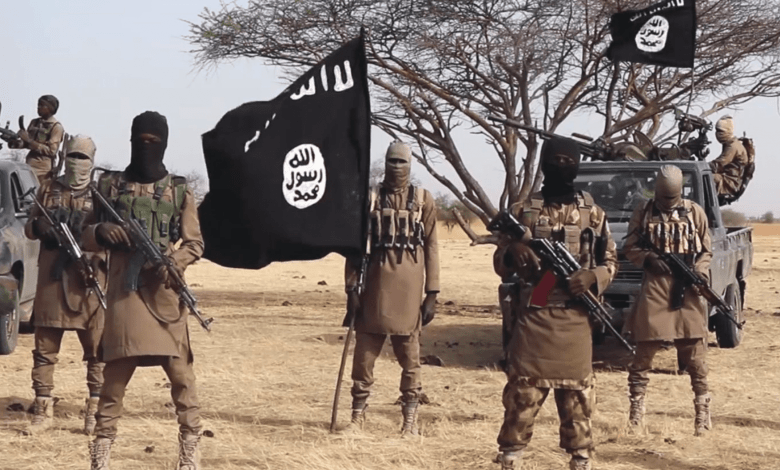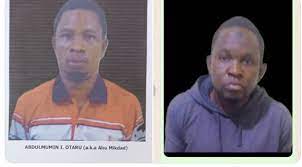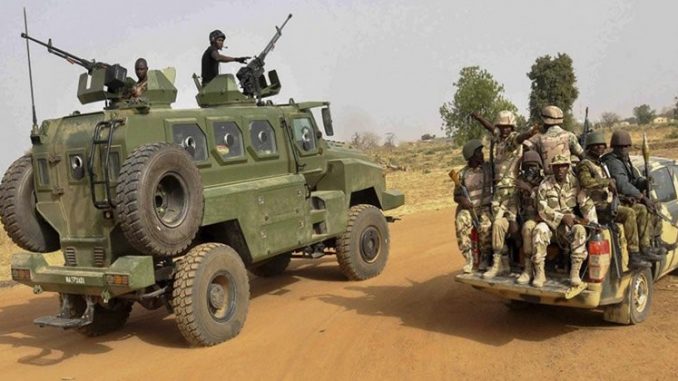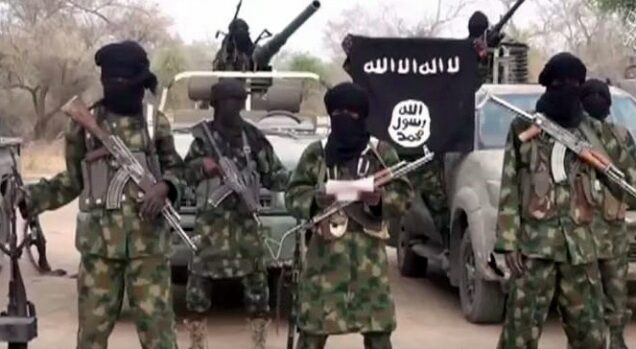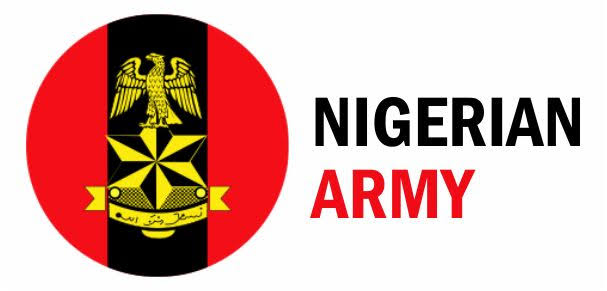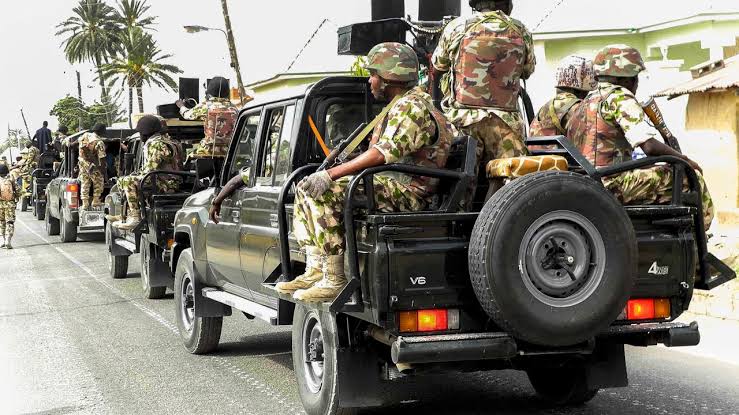(This piece was earlier published in the immediate aftermath of the July Kuje prison break in Abuja by ISWAP operatives and subsequent sporadic terrorist attacks in and around the Federal Capital. This week’s coordinated terror alerts by embassies of different Western countries in Abuja compel a re-run of the piece.)
On the matter of ensuring national security by all means necessary, I accept being called a hawk. But on the concomitant cautious fear that bad things could happen to the nation if our defenses are lax, I will accept the title of coward. In short, a nation is entitled to deploy maximum force to ensure its continued sovereignty while constantly looking out to protect its citizens from those forces that do not wish both government and people well. Taken together, this is the contradiction that now defines our security imperative. Nothing better gives our situation more urgency than the clear consistent threat on the security of Abuja. Life, limbs and the very state are now at risk as the national capital is daily assaulted by an undisguised enemy force. And yet the embarrassing laxity of our defense and security forces in response to this existential threat dictates that we prepare for the worst and hope for the best.
In the last couple of weeks, an enemy we are used to casually dismissing as a bunch of bandits has consistently targeted Abuja. Without fear of any contradiction, the forces of insecurity have coalesced into an enemy with a concerted strategic focus. The target of this adversary is clearly and unambiguously the sovereign heart of the Nigerian state. I am convinced that some evil force is out to hoist its nasty flag and shout a familiar bad slogan somewhere in the heart of Abuja.
Only in the last fortnight, ISWAP terrorists have stormed and breached the Kuje medium security prison and freed an indeterminate number of inmates. These includd over 60 dangerous Boko Haram combatants. An operation that reportedly involved over 200 ISWAP operatives on motorbikes and which lasted a few hours has merely been explained away by an untidy exchange of blames and excuses by those paid to secure that facility. An embarrassed President Buari visited the broken prison and demanded a report on why our intelligence set up woefully failed to prevent the attack.
Soon afterwards, alarms by some institutions in Abuja about imminent terrorist attacks have produced evidence that the enemy we fear to name is very much at the door. An elite Brigade of Guards patrol in the reported area of the Abuja Law School yielded a bloody ambush that has claimed the lives of a number of soldiers of the presidential guards unit. If the well trained and armed guards of the president cannot survive an attack by thi enemy force, what chance is there for the ordinary Abuja resident?
Meanwhile a reported siege of a Federal Government high school in…a neighborhood of Abuja has alarmed school authorities into asking parents to evacuate their children from the school. In a reflex over reaction, authorities of the Federal Capital Authority have ordered a shut down of any number of private and public schools in and around Abuja as a preventive measure. There is no word as to for how long these unforeseen closures will last. I shtere a level of intelligence available to the officials ordering these closured that is not available to either commonsense or the public?
As if that was not enough, only last Thursday evening, a roving unit of terrorists attacked an army checkpoint around Zuma Rock on the busy Abuja-Kaduna highway. Casualty figures remain hazy and conflicting. Predictably, these sporadic attacks in and around Abuja have created an understandable atmosphere of fear among the populace.
Understandably, the president has taken some feeble action. He has met with his Security Council. The National Security Adviser has briefed a frightened and unsettled nation about steps being taken to tame terrorists and in particular defend Abuja. In an unusually candid admission, the NSA admitted that Nigerians have become weary of the security situation and the numerous official reassurances. By his admission, the public has incrementally lost confidence in the ability of the state to protect and defend the citizenry thereby making self-help and personal protection an increasingly attractive option.
Mr. Monguno revealed that defense and security authorities are working on a new set of strategies to contain and combat the insecurity in the nation! After seven years of Buhari’s anti corruption and maximum security administration? The army has quickly reshuffled its commanders as if the mere moving of personnel and military furniture will translate into a fundamental strategic refocusing or tactical review of the old methods that have woefully failed us in the last seven years under a president with a military background.
Clearly, the political leadership of the nation has been vastly deficient. Mr. Buhari has serially fallen short in the enormous powers which the Nigerian constitution give him as commander –in- chief. Moreso, for a president who was elected partly because he has a military background that was hoped would equip him to deal with the insecurity that preceded his ascendancy. However, given the present critical stage of the threat to national security , it would be a disservice to the nation for politicians to aggravate what is already and incendiary moment. Therefore, the six -week ultimatum given the president to fix the insecueity or face impeachment is an irresponsible political gambit. It is at best a cheap political blackmail with an intent to frighten an insecure president with a history of epic incompetence. At worst, the threat by senators of the opposition PDP has an inbuilt extortionist undertone that is familiar in Nigeria’s murky political culture of corruption and unbridled mercantilism. It is bad business to try and extort money out of a desperate national security emergency.
Call my alert on the threat to Abuja baseless scare mongering if you like. But I see a clear strategic purpose in the pattern of recent attacks on facilities in and around Abuja. It ought to interest a perceptive public however that the government has never given the adversary a name. It is in fact the terrorists themselves who strike installations like the Kuje prison and reveal unapologetically through vivid videos that they are ISWAP. The government has been reluctant to admit either Boko Haram or ISWAP as the enemy against which they are fighting. The government just tags the attacks the handiwork of terrorists and moves on.
The progressive advance of the enemy forces is by no means haphazard or just opportunistic. What we are witnessing is a clear purposive and directed movement of hostile actions even in an asymmetrical fashion which is typical of jihadist guerilla tactics. But the direction is obvious. It is governed by the territorial ambition of a movement intent on controlling a strategic swathe of territory from the Sahel to the larger West African Gulf of Guinea oceanfront. Nigeria is central to that calculation on account of its population and resource base. It has also become more attractive in recent times on account of the proven serial failures of the institutions of state and the weakness of national defense and security to stoutly defend the nation’s sovereignty.
Some analysts have pointed at signs of collusion between elements in Nigeria’s security forces and the enabling financiers of Boko Haram and ISWAP. Some have seen signs of infiltration of intelligence sources and outright complicity between guardians of state security and defence and the enemy forces leading to ease of some of the operations. No one is certain that these suspicions are either true or totally false.
What we can see is a clear purposive enlargement of the theatre of these attacks in the direction of Abuja as the centre of power in Nigeria. What started out in Borno state has spread throughout the entire North East. It has strayed into the North West and descended on the North Central zone in the North West zone, it has targeted Kaduna as the military industrial nerve centre of the nation and the last line of defense for Abuja. It has successfully tested the nerves of the Nigerian Defence Academy by killing and abducting some of its officers right on the campus.
The enemy briefly knocked out the Kaduna airport by invading its perimeters and abducting some airport workers, thereby briefly closing the airport to many commercial airlines. It has made the Abuja- Kaduna highway untenable as a route for normal civil traffic. The enemy has severally attacked the rail link between Abuja and Kaduna and has knocked it out of the national civil transportation grid. It has taken out the rail link on the Abuja-Kaduna corridor while its rolling stock is marooned. Meanwhile, the Chinese loan that funded the rail line is gathering interest and charges while the project is returning zero revenue. Government has remained silent on when the rail link will reopen. And yet we remain silent on the identity and purpose of this enemy!
The ISWAP/Boko Haram coalition forces have similarly zeroed in on states adjoining Abuja. In Niger state, for instance, the terrorists have taken over whole local governments and are exacting tributes, rents and levies from local populations. It attacked a miners in Shiroro and. killed over 30 soldiers and policemen that dared to challenge their abduction of Chinese miners. In the same week, an advance contingent of presidential staff on their way to president Buhari’s home town of Daura were attacked and a couple of them injured. A deliberate targeting of the president as the ultimate symbol of our national sovereignty cn only mean one thing: an arrow in the heart of the Nigerian nation.
Those intent on diminishing the urgency and import of the obvious threat to Abuja and Nigeria’s sovereignty need to learn from recent jihadist takeovers and disruptions of nations in recent times. The dramatic fall of Kabul to the forces of the Taliban proceeded in similar fashion, At first the Taliban forces were concentrated far in the provinces, far away from the capital. Through a series of lightning raids and coordinated but sporadic attacks on major strategic routes to Kabul, they stunned both the government in Kabul as well as its supporting US military backers. All that American training, air power, hardware, logistics and communications backing were neutralized overnight. Taliban operatives who had effectively infiltrated the intelligence and defense architecture of the state merely streamed into an already softened and besieged Kabul.
America retreated in stampede almost like in Saigon on April 30, 1975. All that sophisticated arsenal was reduced to a huge scrap yard of useless military technology that no one could use. All the generals with their fancy titles, epaulets and shiny medals were reduced to a horde of scampering cowards on the run. Many of them had long been in the payroll of both the Americans and the Taliban simultaneously. That lesson ought to be instructive to those paid to guard the secrets of Nigeria’s security and defence in today’s unfolding engagement.
There may still be some residual professional muscle left in our military to confront our security nightmare. But the political interpretation of the crisis has bred a doctrinal anarchy and confusion of terminologies which is not helping those whose business it is to worry about Nigeria’s insecurity.
The political leadership has finally agreed that the power base of the state is confronted by a terrorist onslaught. It took a while to officially pronounce the ISWAP/Boko Haram coalition a terrorist undertaking. But even that is hardly the whole truth by the strict characterization of terrorism. We are not dealing with mere sporadic terrorists. Terrorists strike at the soft underbelly of society’s complacent zones to disturb the peace, violently distort the norm and frighten the innocent. Terrorists storm train stations, airports, convert air planes into Kamikaze missiles, blow up restaurants, mosques, churches, night clubs and other places where society takes normalcy and tranquility for granted. These are the favorite targets of determined terrorists. As a rule, terrorists do not take territory or seek sovereignty over any place, peoples or things. They bomb, shoot or stab and instill horror through sudden violent acts. Thereafter, they move on, hoping not to be caught but leaving an unmistakable message through blood and tears. Their aim is to shock us all into an awareness of a cause or a cultural injury. The aim of terrorists is always to provoke the question: Why?. The hope is that the quest for answers will lead to some justice or atonement of an original injustice that has been etched into the mind of terrorist foot soldiers.
Terrorists carry no maps or compasses. To do so would make their operations predictable and their trail obvious. All terrorists are unhinged agents of the devil, satan’s foot soldiers with neither direction nor compass. In some cases, they decorate their violence with a sectarian creed in order to keep their followership and attract new devotees. Sectarian terrorism is best rooted out by political means from its creedal source not massaged by silly palliatives and symbolic amnesties.
Let us make no mistake about it. In Nigeria, we are not confronted by transactional bandits merely out to collect loose cash to assuage their socio economic deprivation and flee the trade after making enough money. Of course there are criminal bandit elements in our mix of sundry trouble makers. But those ones merely frighten innocent people, take hostages, rape women, demand ransom and sometimes storm schools, transit buses, trains and isolated motorists. Banditry is bad violent entrepreneurship gone out of control. But the majority of those we call bandits are recruits of the ISWAP/Boko Haram enterprise. The ransoms collected by bandits go to swell the war chest of the larger jihadist enterprise. Criminal banditry is easy to root out. Take out the gangster chieftains and you are likely to exterminate the ring. But systemic jihadist banditry has an almost limitless pool of recruits and is therefore self -renewing.
Nigeria’s more strategic insecurity is therefore a local off -shoot and subset of the larger ISIS global jihadist terrorist network. In its Sahelian iteration, ISIS has metamorphosed into ISWAP/Boko Haram which has swallowed up Boko Haram and other isolated local chapters. That is why it became necessary and urgent for ISWAP to exterminate Abubakar Shekau and the leadership of Boko Haram. It has territorial ambition. It has political and strategic purpose. It has a sectarian dressing to appeal to innocent hearts and minds. It has a geo- strategic design. Its operations have a strategic compass and political map. What is unfolding in Nigeria especially the virtual siege on Abuja are the manifestations of these more concerted purposes and larger designs hence the concerted international concern. We need to key into the international onslaught to save our nation instead of this laughable grand standing by marionette minions of state power.
